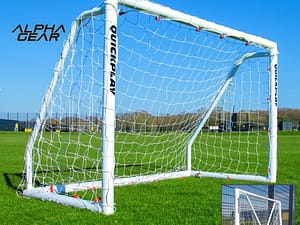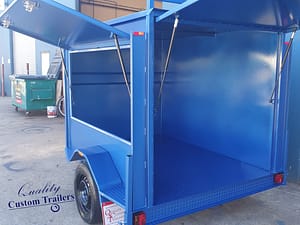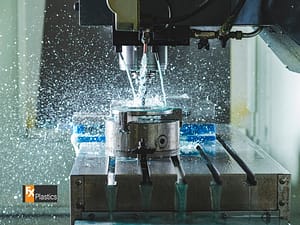A rental agreement in the context of equipment hire is a legally binding contract between the rental company and the customer. It outlines the terms and conditions under which the equipment is rented out. These agreements specify the duration of the rental, the cost, the responsibilities of both parties, and other crucial details such as insurance and damage policies. Understanding these agreements ensures that both the renter and the rental service have clear expectations and responsibilities, minimizing potential disputes.
Why Is It Important to Understand Your Rental Agreement?
Understanding your equipment rental agreement is crucial for several reasons. It helps you avoid unexpected fees and penalties by making you aware of all financial obligations and conditions stated in the agreement, such as late fees, return conditions, and maintenance responsibilities. Additionally, a thorough understanding of the agreement ensures that you are aware of your rights and protections under the contract, including what happens in case of equipment malfunction or if the equipment doesn’t meet your project’s needs.
Key Elements of a Rental Agreement
What Are the Standard Components Found in Equipment Rental Agreements?
Typical components of an equipment rental agreement include:
- Rental Period: The start and end dates of the rental.
- Rental Fee: The cost of renting the equipment, including any deposit required and payment schedule.
- Equipment Description: Detailed description of the equipment being rented.
- Usage Conditions: Guidelines on how the equipment should be used and any restrictions.
- Insurance and Liability: Information on insurance coverage and liability in case of equipment damage or loss.
- Termination Conditions: Conditions under which the agreement can be terminated early by either party.
Understanding Terms: Duration, Costs, and Responsibilities
- Duration: The length of time the equipment will be rented, which can affect the total cost and availability for other projects.
- Costs: Includes the base rental fee, any additional charges (like delivery fees), and potential penalties for late returns or damage.
- Responsibilities: Outlines who is responsible for maintaining the equipment, how repairs should be handled, and the condition in which the equipment must be returned.
Special Considerations for Different Types of Equipment
Specific Clauses to Look for When Renting High-Risk Equipment like Chainsaws
When renting high-risk equipment such as chainsaw hire, it’s important to look for clauses related to training and safety gear requirements, damage liability, and emergency procedures. Ensure that the agreement clearly states who is responsible for providing safety equipment and training on the proper use of the machinery.
Adjustments in Agreements for Heavy Machinery vs. General Equipment
Rental agreements for heavy machinery like excavators or cranes often include additional provisions compared to more general equipment. These might cover aspects such as operator certification, special transportation and delivery, setup and dismantling fees, and specific insurance requirements. Understanding these differences ensures that you are adequately prepared and compliant with all legal and safety standards.
Negotiating Your Rental Agreement
How to Negotiate Terms for Favourable Conditions
Negotiating a rental agreement effectively requires preparation and understanding of your specific needs. Before entering negotiations, clearly define what is essential for your project, such as rental duration, specific equipment models, or additional services like delivery and setup. Approach negotiations with a clear understanding of market rates to ensure competitive pricing. Be open to discussing different aspects of the contract and express willingness to compromise where possible to achieve mutually beneficial terms.
What Are Negotiable vs. Non-Negotiable Elements in an Equipment Rental Agreement?
Negotiable elements in an equipment rental agreement often include the rental price, length of the rental period, and specific terms regarding equipment maintenance and servicing. Non-negotiable elements typically involve legal and safety regulations, insurance requirements, and liability clauses. It’s important to recognize which terms can be flexibly discussed and which are fixed for legal and safety compliance.
Common Pitfalls in Equipment Rental Agreements and How to Avoid Them
Typical Mistakes Made When Signing Rental Agreements
Common mistakes include not reading the agreement thoroughly, misunderstanding the terms about fees and penalties, and assuming certain services are included, such as maintenance and equipment delivery. Another frequent error is neglecting to check for automatic renewal clauses that could extend the rental period beyond the intended timeframe.
Tips for Ensuring You Understand All Clauses and Conditions
To avoid these pitfalls, take the time to read every section of the agreement carefully. If certain clauses or terms are unclear, ask for clarification from the rental company before signing. Consider having a legal expert review the agreement, especially for long-term rentals or high-value equipment. Always keep a signed copy of the agreement for your records.
Legal Protections and Your Rights as a Renter
What Legal Protections Cover You in an Equipment Hire Scenario?
Renters are protected under consumer law, which ensures that the rented equipment must be of satisfactory quality, fit for purpose, and as described by the rental company. Legal protections also cover terms of fairness and the right to seek redress if the equipment does not meet these standards. In some regions, additional protections may apply, such as specific rights to cancel or terminate the rental agreement under certain conditions.
Understanding Your Rights and Obligations Under Rental Law
As a renter, you have the right to expect that the equipment you rent is safe and reliable. However, you also have obligations, such as using the equipment only in the manner intended and complying with safety guidelines. It’s important to understand both your rights to protect your interests and your obligations to avoid legal issues. Familiarizing yourself with the relevant laws in your jurisdiction can be extremely beneficial.
Ending or Extending Rental Agreements
Procedures for Properly Ending an Equipment Rental Agreement
Properly ending an equipment rental agreement involves several key steps to ensure compliance with the terms and avoid penalties. First, notify the rental company in writing before the rental period expires, adhering to the notice period specified in the agreement. Ensure that the equipment is returned in the condition specified in the agreement, considering normal wear and tear. Arrange for the rental company to inspect the equipment upon return, and obtain a return receipt that documents the condition of the equipment and the date of return.
Options and Considerations for Extending Your Equipment Hire
If you need to extend the rental period, review the original agreement for any clauses related to extensions. It’s important to contact the rental company as soon as you know an extension is necessary, as some equipment may be booked by other customers. Discuss new terms and potentially negotiate a continued rate that might offer savings over starting a new rental agreement. Ensure that any agreed-upon extension is documented in writing to amend the original rental terms.
Conclusion
Key Takeaways for Handling Rental Agreements in Equipment Hire
- Thoroughly Understand the Agreement: Always read and ensure you comprehend all the terms and conditions before signing.
- Keep Communication Open: Maintain clear and consistent communication with the rental company throughout the rental period.
- Document Everything: From the initial agreement to any changes, extensions, and the condition of the equipment upon return, keep detailed records.
Final Checklist Before Signing Any Equipment Rental Agreement
- Verify the Equipment Details: Ensure the agreement accurately describes the equipment and includes all associated accessories and parts.
- Check the Terms: Review the pricing, duration, responsibilities for maintenance and repair, insurance coverage, and termination clauses.
- Understand the Penalties: Be clear on late return fees, damages penalties, and any other potential additional costs.
- Know Your Rights and Obligations: Familiarize yourself with your legal rights and obligations under the agreement to avoid surprises.









